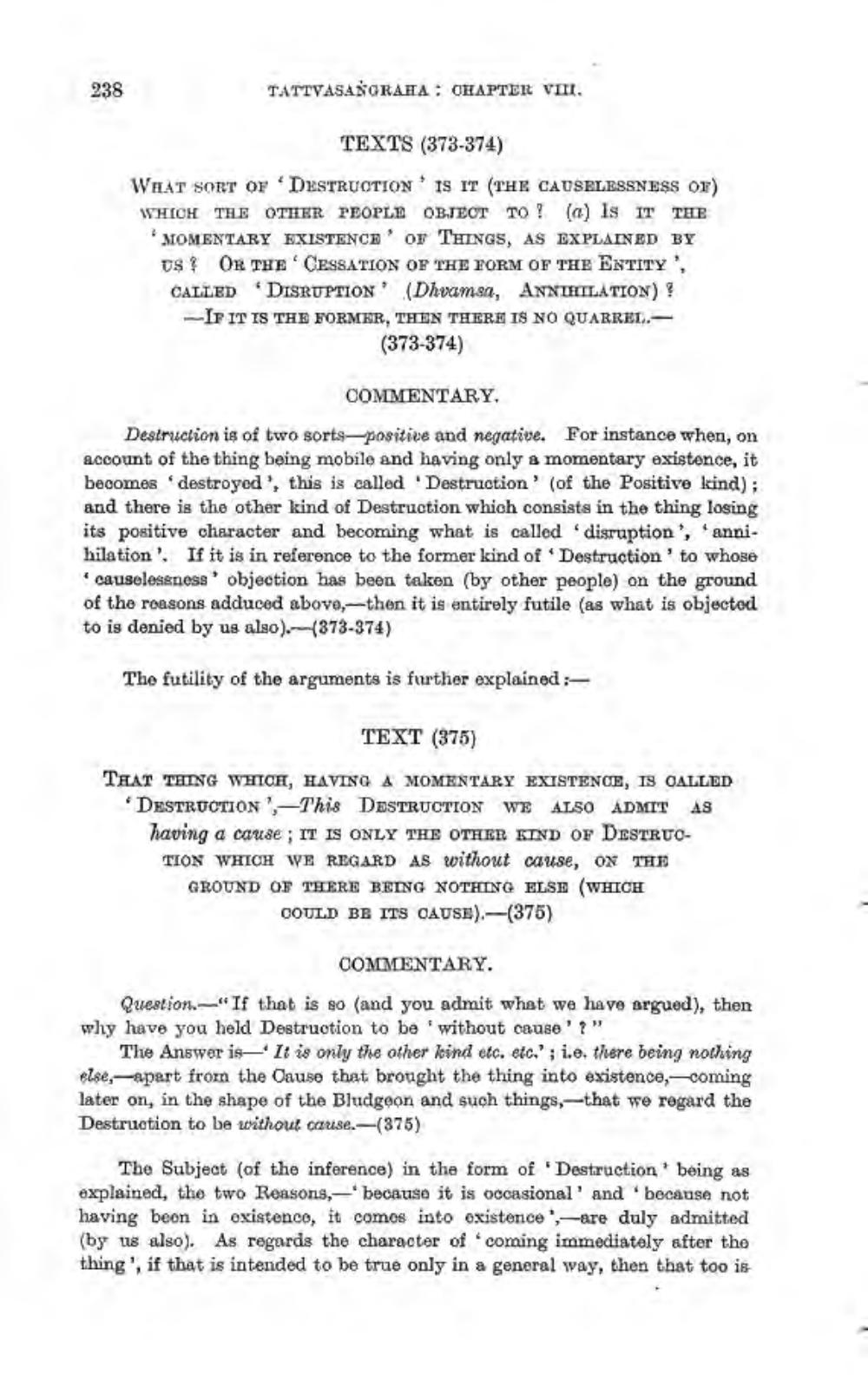________________
238
TATIVASANGRAHA: CHAPTER VIII.
TEXTS (373-374)
WHAT SORT OF DESTRUCTION IS IT (THE CAUSELESSNESS OT) WHICH THE OTHER PEOPLE OBJECT TO ! (a) Is IT THE
MOMENTARY EXISTENCE OF THINGS, AS EXPLAINED BY us? OR THE CESSATION OF THE FORM OF THE ENTITY CALLED DISRUPTION (Dhvamsa, ANNIHILATION) ? -IPIT IS THE FORMER, THEN THERE IS NO QUARREL.
(373-374)
COMMENTARY
Destruction is of two sorts-positive and negative. For instance when, on account of the thing being mobile and having only a momentary existence, it becomes destroyed', this is called 'Destruction of the Positive kind); and there is the other kind of Destruction which consists in the thing losing its positive character and becoming what is called "disruption', 'annihilation'. If it is in reference to the former kind of Destruction' to whose 'causelessness objection has been taken by other people) on the ground of the roasons adduced above, then it is entirely futile (as what is objected to is denied by us also).-(873-374)
The futility of the arguments is further explained :
TEXT (375)
THAT THING WHICH, HAVING A MOMENTARY EXISTENCE, IS CALLED DESTRUCTION—This DESTRUCTION WE ALSO ADMIT AS having a cause; IT IS ONLY THE OTHER KIND OF DESTRUOTION WHICH WE REGARD As without cause, ox THE GROUND OF THERE BEING NOTHING ELSE (WHICH
COULD BE ITS CAUSE).-(375)
COMMENTARY. Question. "If that is so (and you admit what we have argued), then why have you held Destruction to be without cause'?"
The Answer is— It is only the other kind etc. etc.'; i.e. there being nothing else, - apart from the Cause that brought the thing into existence, coming later on, in the shape of the Bludgeon and such things that we regard the Destruction to be without cause.-(375)
The Subject (of the inference) in the form of Destruction being as explained, the two Reasons, because it is occasional' and because not having beon in existence, it comos into existence',-are duly admitted (by us also). As regards the character of coming immediately after the thing', if that is intended to be true only in a general way, then that too is




